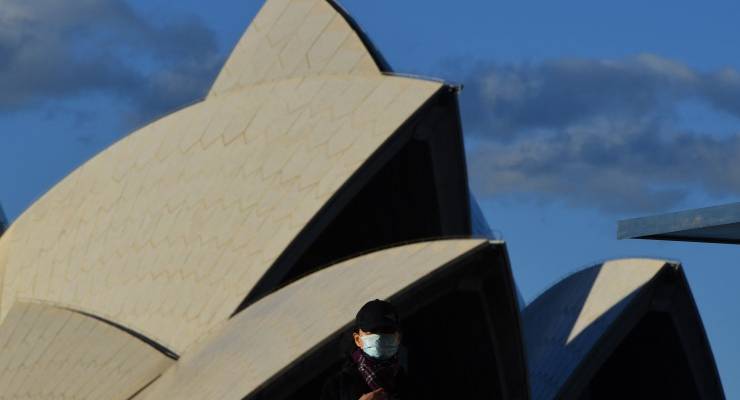
Safe as houses An eagle-eyed tipster got in contact to point out some subtle and interesting changes in the travel restrictions in place in New South Wales at the end of last month:
“Prior to the big changes to the public health order in NSW which took effect on August 20 (see schedule one, section eight), it was a reasonable excuse to travel back and forth between different places of residence within greater Sydney,” they said.
“The August 20 changes excluded that excuse. It was quietly changed again four days later, reinstating the exemption for travel between places of residence. No big public announcement. Had there been an uproar among Liberal voters with their Palm Beach weekenders?”
Liberal Democrap In abstract, one may think it worthwhile — or at the very least defensible — to have a libertarian perspective in Parliament. An acute sense that government intervention in people’s personal lives should be limited, and a desire for strong justification for any public spending? Sure, why not. Of course, in reality the Liberal Democrats — last seen hoovering up many of the right’s weirdest units — have brought undergraduate, emptily provocative bullshit like the following to Australian politics: a “remix” of New South Wales Premier Gladys Berejiklian’s press conferences so that she seems to be announcing “two million police on every street corner monitoring every citizen” and other sinister announcements.

This reaches a nadir when the stuttering dialogue patchwork is made to say “the government is now about to announce what we call the final solution”. The invocation of human history’s greatest act of state horror as a cheeky counterpoint to public health measures would be gross enough, but Berejiklian’s family connection to the Armenian genocide makes the whole thing that much worse.
Gamers rise up! China has forbidden under-18s from playing video games for more than three hours a week in an attempt to curb an apparently growing addiction to what the Chinese government has referred to as “spiritual opium”. As someone who has spent a dispiriting chunk of their lockdown chasing the ever-diminishing sugar hit of leading Leeds United to the Champions League final in FIFA 21, I can sympathise.
Apart from inspiring a real thought salad of a piece over at Nine, we hope the intervention might be a factor in redressing other important gamer issues, like that identified by Pauline Hanson in 2016:

Zipping up the Amazon A tipster got in contact to share the following interaction with Amazon. They received this email from the Jeff Bezos-owned giant on Wednesday:
We’re writing to notify you of a change to Visa credit card payments on Amazon.com.au. Due to the costs associated with Visa transactions, beginning 1 November 2021, Amazon will apply a 0.5% surcharge to purchases made using Visa credit cards on Amazon.com.au. You can avoid the surcharge by using any debit card, Zip, or any non-Visa credit card like a Mastercard, Amex, or UnionPay card.
The customer wrote to Visa about this, and received this reply:
Regarding surcharging in Australia, the Visa Regulations specify that a merchant cannot assess a surcharge, unless local law expressly requires that a merchant be permitted to impose a surcharge. That is the case in Australia. Under law and regulation by the Reserve Bank of Australia, merchants in Australia are entitled to assess a surcharge for debit and credit card transactions. As such, Visa is unable to apply the existing “no surcharge” rule.
So will the Reserve Bank allow Amazon to discriminate in favour of other services, including Zip’s buy-now-pay-later offering, with which Amazon has had a relationship since November 2019, something not disclosed the relationship in its initial email?








On the ‘final solution’, visitors to Australia and those who accidentally run across not just Sky AD or Australians holding similar beliefs, but mainstream media in Oz, are often appalled by the casually racist narratives and revised nativist tropes that pepper normal discourse in Australia (would not be acceptable in polite company elsewhere), e.g. the ‘great repalcement’.
Worst, it comes via conservative political and/or media elites, who in turn encourage voters to be ’empowered’ in expressing their ‘freedom of speech’; makes all Australians who think they are funny, sound like a losers or deplorables of the alt right.
The passing on of credit card fees is similar to PayPal saying you cannot link MasterCard accounts to their service because MasterCard says you have to also quote the three digit number on the back of the card for an online purchase. Other organisations are dealing with this and making it happen but not PayPal. Instead over the next few weeks they brought out a PayPal branded Visa credit card. I have no interest in having a credit card so I don’t use PayPal any more. I wonder how that is going for them?